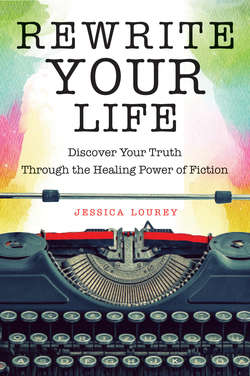Читать книгу Rewrite Your Life - Jessica Lourey - Страница 16
На сайте Литреса книга снята с продажи.
Inhibition-Confrontation
ОглавлениеAccording to inhibition-confrontation, the third theory of why writing is an effective pathway to emotional healing, it's hard work to avoid thinking about stress or trauma. This is the inhibition part of the name. Somehow, someway, the negative thoughts and impulses leak in despite our best efforts to tamp them down. This denial leads to chronic stress, which takes a toll on the mind and body.
Confronting these stressors through writing—the confrontation part of the name—produces immediate boosts in mental and physical well-being. The trauma or stress—in other words, the stimuli—still exists in memory form, but when you face it, its significance changes.
Here's an example. Think of your life ordeals as zombies trying to get in through your front door. You spend all your energy shoulder-to-the-door trying to keep them out—inhibiting the zombies' arrival—which doesn't leave much time or attention for anything else. Your very survival depends on keeping that door closed, but you're exhausted; you can only keep this up for so long, so you finally let down your guard. The zombies charge through, and—what??—you realize there were never any flesh-eating monsters on the other side of the door. It was memories of zombies you were holding back this whole time.
The arts, and specifically writing, provide a protected route for opening that door and letting the memories-masquerading-as-life-threats in. Once they're through, you free up all the time and energy you've spent shoring up that door. For my money, the most exciting part of this last theory is that what we've been inhibiting or holding doesn't need to be traumatic or long-buried. Through writing, we can confront even a minor annoyance and still reap health benefits.
In further good news, it isn't necessary to know which one of these three explanations you're tapping into to be sustained and healed by writing. You just need to write. You don't need to choose autobiography or memoir as your vehicle either, though both narrative therapy and expressive writing therapy are centered on factual writing, often in the forms of essays, journals, and letters.
What I have returned from the dark side to tell you is that fiction writing works just as well.
For some of us, it works even better.
